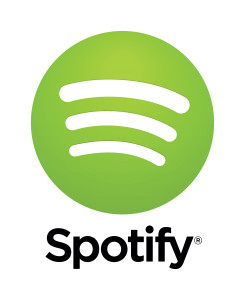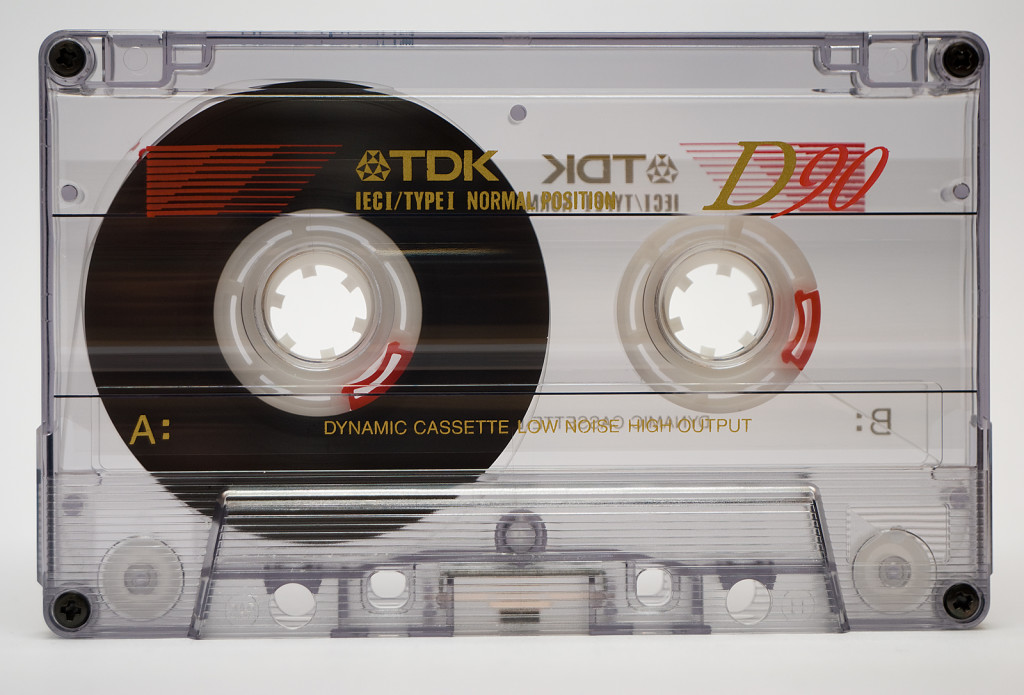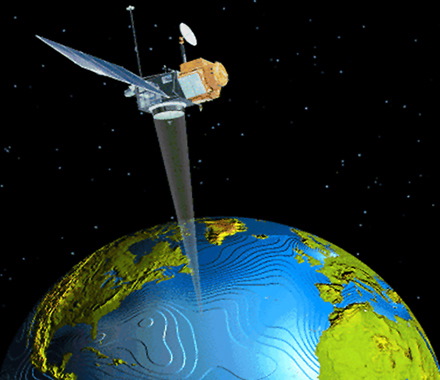The human desire for music only increases and broadens from generation to generation as new genres are formed and old ones are re-discovered or newly revered. We want it cheaper, better, more, faster, on our every device, and wherever we go. We want it to play whatever we want but, at the same time, we want music to surprise us and put us in the mood we don’t even know we want to be in. Sound crazy?
Well, the music and tech industries have risen to meet those “needs.” Now, no matter where you go or what you want, or what you don’t know you want – music is there to give you that Hall and Oates “I’m Joseph Gordon Levitt and everyone randomly dances in perfect choreography to my mood” feeling. (Who doesn’t love that movie?)
 Speaking of Sean Parker, guess who helped launch Spotify? The digital streaming Netflix-style subscription service has taken a big piece of the pie away from record stores and Apple, creating an easier, cheaper way to get quality music without the hassle or jail time. Pandora rocks that market with over half the users – 60 million in 2012, with Spotify taking 20 million. However Spotify’s stake is growing due to its dynamic social nature: users can login, connect, and share music with other Facebook friends with the touch of their fingers. Both platforms – Pandora and Spot – offer a premium package: Pandora One removes those annoying ads every three songs and always right before you are going to lean in for the kiss; and Spotify does the same, adding the downloading feature to your mobile device so you don’t always have to stream it and thus pay ten or more dollars extra every month for your overages on your roaming data usage.
Let’s not forget that Apple has just bought Beats, which is more than just Dr. Dre’s [insert the modern word for cool in Compton] headphones company – it’s a streaming service also. I guess we are ignoring the massive failure of iTunes radio (snuck in there with that iTunes 3.4.1.e.w.2.6.* update). Let’s see what a Jobs-less Apple can do with some Beats. I picture the business equivalent of a nerd dancing; but hey, let’s see what they can do (Napoleon Dynamite anyone?).
Satellite radio (music from the moon) is having a hay-day piggy-backing the auto retail market. Sirius XM alone pays its car salesmen $200 million annually in an effort to offer “free” subscriptions to new car buyers along with discounted continued membership after three months or what have you. They are getting a return on investment, but it won’t last. According to TelematicsNews.com, in 2008, Sirius boasted 8.91 million subscribers; a figure that will half itself by 2017. Why? It’s cumbersome and Spotify and the like are better, cheaper, easier, and have more of what “I want!” Auto manufacturers are bypassing the bribes for truer luxury as well, adding online radio and, of course, Bluetooth options as standard in many models and looking to create moving Wi-Fi spots in their cars. (Can I get an “Amen?”)
Let’s not forget, at the end of the day, there is always YouTube. According to CNET.com, though 48% of the nation still listens to the radio, most teens (64%) rely on YouTube – the hybrid between piracy and paid. While services such as Vevo pay the artists in royalties, you can bet your life Suzy Q who just made a pretty slideshow with flowers to the music of the late John Lennon did not (I know, I should have said CCR, it would have been perfect). Let’s be honest, who hasn’t reverted to YT in a moment of musical frustration? I see no hands out there. Okay, I’m writing this alone at home.
However, there is hope for the industry. According to Nielsen, half the population is buying music on their smartphones. Because Googling for the right version on YouTube takes forever. Because waiting for the ad to reach the “You can skip this ad in 3, 2, 1 second(s)” during intimate moments literally kills the moment. Because it’s just not cool. Because my data bill this month is $10 over, which is $10 more than I wanted to spend. Because getting pulled over while typing “Who Shot the Sherriff?” on my smartphone isn’t that smart.
Speaking of Sean Parker, guess who helped launch Spotify? The digital streaming Netflix-style subscription service has taken a big piece of the pie away from record stores and Apple, creating an easier, cheaper way to get quality music without the hassle or jail time. Pandora rocks that market with over half the users – 60 million in 2012, with Spotify taking 20 million. However Spotify’s stake is growing due to its dynamic social nature: users can login, connect, and share music with other Facebook friends with the touch of their fingers. Both platforms – Pandora and Spot – offer a premium package: Pandora One removes those annoying ads every three songs and always right before you are going to lean in for the kiss; and Spotify does the same, adding the downloading feature to your mobile device so you don’t always have to stream it and thus pay ten or more dollars extra every month for your overages on your roaming data usage.
Let’s not forget that Apple has just bought Beats, which is more than just Dr. Dre’s [insert the modern word for cool in Compton] headphones company – it’s a streaming service also. I guess we are ignoring the massive failure of iTunes radio (snuck in there with that iTunes 3.4.1.e.w.2.6.* update). Let’s see what a Jobs-less Apple can do with some Beats. I picture the business equivalent of a nerd dancing; but hey, let’s see what they can do (Napoleon Dynamite anyone?).
Satellite radio (music from the moon) is having a hay-day piggy-backing the auto retail market. Sirius XM alone pays its car salesmen $200 million annually in an effort to offer “free” subscriptions to new car buyers along with discounted continued membership after three months or what have you. They are getting a return on investment, but it won’t last. According to TelematicsNews.com, in 2008, Sirius boasted 8.91 million subscribers; a figure that will half itself by 2017. Why? It’s cumbersome and Spotify and the like are better, cheaper, easier, and have more of what “I want!” Auto manufacturers are bypassing the bribes for truer luxury as well, adding online radio and, of course, Bluetooth options as standard in many models and looking to create moving Wi-Fi spots in their cars. (Can I get an “Amen?”)
Let’s not forget, at the end of the day, there is always YouTube. According to CNET.com, though 48% of the nation still listens to the radio, most teens (64%) rely on YouTube – the hybrid between piracy and paid. While services such as Vevo pay the artists in royalties, you can bet your life Suzy Q who just made a pretty slideshow with flowers to the music of the late John Lennon did not (I know, I should have said CCR, it would have been perfect). Let’s be honest, who hasn’t reverted to YT in a moment of musical frustration? I see no hands out there. Okay, I’m writing this alone at home.
However, there is hope for the industry. According to Nielsen, half the population is buying music on their smartphones. Because Googling for the right version on YouTube takes forever. Because waiting for the ad to reach the “You can skip this ad in 3, 2, 1 second(s)” during intimate moments literally kills the moment. Because it’s just not cool. Because my data bill this month is $10 over, which is $10 more than I wanted to spend. Because getting pulled over while typing “Who Shot the Sherriff?” on my smartphone isn’t that smart.

 A former Internet Marketing Manager, Joe Cunningham is a dad, a screenwriter, playwright and all-around adventurer. He blogs for Kinani Blue, charms Google at Terakeet and enjoys running through the city. You can follow him on Twitter at @IndianaJoe77 or he can be reached at [email protected].
For more TECH – Click Here
A former Internet Marketing Manager, Joe Cunningham is a dad, a screenwriter, playwright and all-around adventurer. He blogs for Kinani Blue, charms Google at Terakeet and enjoys running through the city. You can follow him on Twitter at @IndianaJoe77 or he can be reached at [email protected].
For more TECH – Click Here
The Many Types of Modern Music Listening
Technology has vastly reshaped the music industry and right under our noses. Though their percentage of the music market is declining (a 13% drop from 2011-2012 according to Neilsen and Billboard), physical CD album purchases are still a mainstay in the industry, together with their counterpart, vinyl – the “new” hipster way of listening to music – growing almost 18% in the same timeframe. Does anyone in high school right now remember cassette tapes? My brother still listens to them because he says “the music sounds better.” Rewind, and play it again. Not surprisingly, digital music purchases have skyrocketed over the last half-decade, accounting for well over half of the entire music industry in 2012: with Google Play and it’s much more massive competitor – Apple’s iTunes – accounting for the lion’s share. According to Factbrowser, the average user spends about $40 a year on iTunes. Today there are nearly 600 million active accounts. Do the math – that’s $24 billion annually. However, Apple’s takeaway from songs is much lower than its app profit: 20 cents on the dollar verses 30. Cry me a river, right? (Hey, that sh*t adds up.) Still, there is more than enough money to be made and a well-deserved pat on the back for the late Steve Jobs who famously pointed out that music “pirates” spend much more time stealing music than it’s worth. “By spending an hour of your time to save less than four dollars,” said Jobs, “You’re working for less than minimum wage.” Awesome. Needless to say, since the induction of iTunes in 2003, according to TIME magazine, “the music industry is up for the first time since 1999” and “piracy is down.” Though music sales in 2012 were barely half of the $30 billion they were in the 90’s, we have come a long way since Sean Parker (aka Justin Timberlake in The Social Network) and his Napster extravaganza. Today’s Torrent users have dropped to one in ten music listeners, while “back in the day” circa 2005, it was twice that number. (Not to mention, the FBI has been cracking down on those who haven’t gotten cyber STDs from ripping off Nashville.) Speaking of Sean Parker, guess who helped launch Spotify? The digital streaming Netflix-style subscription service has taken a big piece of the pie away from record stores and Apple, creating an easier, cheaper way to get quality music without the hassle or jail time. Pandora rocks that market with over half the users – 60 million in 2012, with Spotify taking 20 million. However Spotify’s stake is growing due to its dynamic social nature: users can login, connect, and share music with other Facebook friends with the touch of their fingers. Both platforms – Pandora and Spot – offer a premium package: Pandora One removes those annoying ads every three songs and always right before you are going to lean in for the kiss; and Spotify does the same, adding the downloading feature to your mobile device so you don’t always have to stream it and thus pay ten or more dollars extra every month for your overages on your roaming data usage.
Let’s not forget that Apple has just bought Beats, which is more than just Dr. Dre’s [insert the modern word for cool in Compton] headphones company – it’s a streaming service also. I guess we are ignoring the massive failure of iTunes radio (snuck in there with that iTunes 3.4.1.e.w.2.6.* update). Let’s see what a Jobs-less Apple can do with some Beats. I picture the business equivalent of a nerd dancing; but hey, let’s see what they can do (Napoleon Dynamite anyone?).
Satellite radio (music from the moon) is having a hay-day piggy-backing the auto retail market. Sirius XM alone pays its car salesmen $200 million annually in an effort to offer “free” subscriptions to new car buyers along with discounted continued membership after three months or what have you. They are getting a return on investment, but it won’t last. According to TelematicsNews.com, in 2008, Sirius boasted 8.91 million subscribers; a figure that will half itself by 2017. Why? It’s cumbersome and Spotify and the like are better, cheaper, easier, and have more of what “I want!” Auto manufacturers are bypassing the bribes for truer luxury as well, adding online radio and, of course, Bluetooth options as standard in many models and looking to create moving Wi-Fi spots in their cars. (Can I get an “Amen?”)
Let’s not forget, at the end of the day, there is always YouTube. According to CNET.com, though 48% of the nation still listens to the radio, most teens (64%) rely on YouTube – the hybrid between piracy and paid. While services such as Vevo pay the artists in royalties, you can bet your life Suzy Q who just made a pretty slideshow with flowers to the music of the late John Lennon did not (I know, I should have said CCR, it would have been perfect). Let’s be honest, who hasn’t reverted to YT in a moment of musical frustration? I see no hands out there. Okay, I’m writing this alone at home.
However, there is hope for the industry. According to Nielsen, half the population is buying music on their smartphones. Because Googling for the right version on YouTube takes forever. Because waiting for the ad to reach the “You can skip this ad in 3, 2, 1 second(s)” during intimate moments literally kills the moment. Because it’s just not cool. Because my data bill this month is $10 over, which is $10 more than I wanted to spend. Because getting pulled over while typing “Who Shot the Sherriff?” on my smartphone isn’t that smart.
Speaking of Sean Parker, guess who helped launch Spotify? The digital streaming Netflix-style subscription service has taken a big piece of the pie away from record stores and Apple, creating an easier, cheaper way to get quality music without the hassle or jail time. Pandora rocks that market with over half the users – 60 million in 2012, with Spotify taking 20 million. However Spotify’s stake is growing due to its dynamic social nature: users can login, connect, and share music with other Facebook friends with the touch of their fingers. Both platforms – Pandora and Spot – offer a premium package: Pandora One removes those annoying ads every three songs and always right before you are going to lean in for the kiss; and Spotify does the same, adding the downloading feature to your mobile device so you don’t always have to stream it and thus pay ten or more dollars extra every month for your overages on your roaming data usage.
Let’s not forget that Apple has just bought Beats, which is more than just Dr. Dre’s [insert the modern word for cool in Compton] headphones company – it’s a streaming service also. I guess we are ignoring the massive failure of iTunes radio (snuck in there with that iTunes 3.4.1.e.w.2.6.* update). Let’s see what a Jobs-less Apple can do with some Beats. I picture the business equivalent of a nerd dancing; but hey, let’s see what they can do (Napoleon Dynamite anyone?).
Satellite radio (music from the moon) is having a hay-day piggy-backing the auto retail market. Sirius XM alone pays its car salesmen $200 million annually in an effort to offer “free” subscriptions to new car buyers along with discounted continued membership after three months or what have you. They are getting a return on investment, but it won’t last. According to TelematicsNews.com, in 2008, Sirius boasted 8.91 million subscribers; a figure that will half itself by 2017. Why? It’s cumbersome and Spotify and the like are better, cheaper, easier, and have more of what “I want!” Auto manufacturers are bypassing the bribes for truer luxury as well, adding online radio and, of course, Bluetooth options as standard in many models and looking to create moving Wi-Fi spots in their cars. (Can I get an “Amen?”)
Let’s not forget, at the end of the day, there is always YouTube. According to CNET.com, though 48% of the nation still listens to the radio, most teens (64%) rely on YouTube – the hybrid between piracy and paid. While services such as Vevo pay the artists in royalties, you can bet your life Suzy Q who just made a pretty slideshow with flowers to the music of the late John Lennon did not (I know, I should have said CCR, it would have been perfect). Let’s be honest, who hasn’t reverted to YT in a moment of musical frustration? I see no hands out there. Okay, I’m writing this alone at home.
However, there is hope for the industry. According to Nielsen, half the population is buying music on their smartphones. Because Googling for the right version on YouTube takes forever. Because waiting for the ad to reach the “You can skip this ad in 3, 2, 1 second(s)” during intimate moments literally kills the moment. Because it’s just not cool. Because my data bill this month is $10 over, which is $10 more than I wanted to spend. Because getting pulled over while typing “Who Shot the Sherriff?” on my smartphone isn’t that smart.
Where Do We Go From Here?
In a recent panel, Hany Nada, a venture capitalist made this stunning remark on how the music industry had three times as much engagement than the sports industry – “yet we cannot get our users to pay for it? That’s fucked up!” he said. Of course, he’s a venture capitalist. However, the point is, in order to create a sustainable system, money must pass from hand to hand. Or online. According to Motherboard.Vice.com, a new company called SoundCloud, may be the prophets of a new generation of musical tech. The platform claims to be a better, faster, more genuinely social way to listen to music than its streaming competitors, paving a new way to level the playing field and create a dialogue between musicians and their recording companies and the average Joe music lover. In any case and however the game will be played, we will always want the music: we want the new stuff to be cool and old favorites to never die. The notes are written in our bodies, and danced to beneath the stars, while doing laundry, behind your cubicle walls, in front of the mirror in the bathroom at the movies, or alone with the one you love. Wherever you go, you can’t escape it; nor do you want to.
 A former Internet Marketing Manager, Joe Cunningham is a dad, a screenwriter, playwright and all-around adventurer. He blogs for Kinani Blue, charms Google at Terakeet and enjoys running through the city. You can follow him on Twitter at @IndianaJoe77 or he can be reached at [email protected].
For more TECH – Click Here
A former Internet Marketing Manager, Joe Cunningham is a dad, a screenwriter, playwright and all-around adventurer. He blogs for Kinani Blue, charms Google at Terakeet and enjoys running through the city. You can follow him on Twitter at @IndianaJoe77 or he can be reached at [email protected].
For more TECH – Click Here













